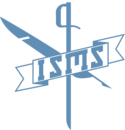Writing Center Consortium for Graduate-level Professional Military Education
By faculty and for faculty, the WCCG-PME hosts an annual multi-week series of hands-on workshops, with a new topic every week. The workshops allow faculty to share practices that improve student writing outcomes.
Workshop Sessions: 2023
Learn about and register for the 2023 sessions below. Registration closes 2 days before each session. The next session is 8 Feb, 1430-1600 EST
Prompting Analysis from Your Students: Feedback Strategies to Foster Analytical Thinking
Nicole Cox, National Defense University
Andrea Hamlen, Marine Corps University
CLICK TO REGISTER
Workshop Description
Students are aware that the work they produce in academic institutions is meant to exhibit analytical thought—their course objectives and assignment prompts tell them so. However, they often struggle to move from summary to analysis, even after receiving faculty feedback.
This workshop takes a two-pronged approach to exploring how we can help our students improve their analytical abilities both inside and outside of the classroom. First, we’ll share feedback strategies to help faculty elicit stronger analysis from students during the drafting and revision process.
Then, we’ll discuss how analytical awareness offers transferable skills for students’ professional lives. The workshop includes recent scholarship on types of feedback that foster analytical thinking, and shares examples of feedback that participants will critique. Participants are encouraged to bring samples of their own feedback to discuss.
22 Feb, 1430-1600 EST
Why Do We Care? Strategies to Teach Writing about Topic Relevance and Real-World Application
Dr. Sandra Leavitt and Ali Rogers, Naval Postgraduate School
CLICK TO REGISTER
Workshop Description
Instructors tend to mistakenly expect their students to intuitively understand and articulate the significance of the topics they’re studying and to relate new knowledge to their personal and professional experiences. Students often struggle with these tasks, which must be taught and practiced. Leveraging the science of learning and cognition, faculty can guide students to deeper levels of thought and understanding by helping them write about meaningful connections between their military experiences and academic knowledge.
Participants will learn how creating opportunities to explore relevance and practice application encourages motivation, fosters self-directed intentional learners, and develops better problem solvers. We’ll explore strategies and activities where students can build skills to write cogent problem and purpose statements, powerful significance sections, and insightful conclusions—tasks they need to master for graduate work and leadership positions.
1 March, 1430-1600 EST
Hearts and Minds: The Soft Power of Relationship-Building with International Military Students
Stase Wells, Marine Corps University
CLICK TO REGISTER
Interdisciplinary research suggests relationship building is a key factor in students' academic achievement. Yet, there is a gap in research on faculty assessment in joint professional military education institutions as it pertains to faculty-student interpersonal relationship building, or the "winning hearts and minds" approach to learning.
Through discussion, self-reflection, and problem-based case-method activities, participants will explore the impacts of interpersonal relationship building on students' academic achievement.
The instructor will share a progress update on a pilot course at Marine Corps University's Leadership Communication Skills Center designed to empower international military students to improve English language skills through relationship building. Participants will come away with strategies for fostering relationship building with their students.
16 March, 1430-1600 EST
How to Use Applied Linguistics in Responding to Multilingual Writers
Dr. May Chung, Karissa Wojcik, Lily Lewis, and Rick Allen, National Defense University
CLICK TO REGISTER
Workshop Description
Many foreign military students in PME programs are completing their first academic course in English, yet the faculty grading their written work may have limited experience teaching nonnative speakers. For these faculty, developing a working knowledge of applied linguistics can help by increasing their understanding of how language is used in different contexts and suggesting ways to capitalize on students’ native languages in their research and writing.
In this workshop, participants will learn to assess international student writing using an applied linguistics approach. They will gain a better understanding of language and cultural patterns that influence student writing in academic English, which will help them hone their ability to distinguish linguistic transference from other communication mishaps. The session also presents insights and practical tips for responding to writers from a linguistics strengths-based approach.
